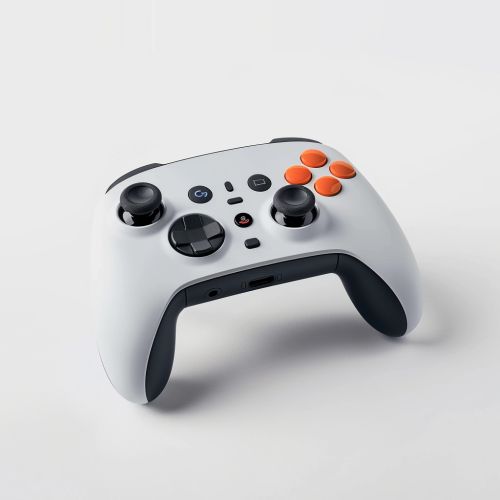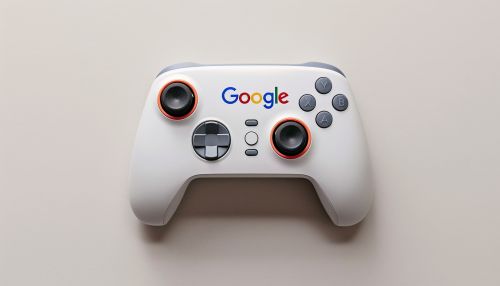Google Stadia
Introduction
Google Stadia is a cloud gaming service developed and operated by Google. It was officially launched on November 19, 2019. Stadia allows users to stream video games directly to devices such as personal computers, tablets, smartphones, and smart TVs, without the need for dedicated gaming hardware. The service leverages Google's extensive cloud infrastructure to deliver high-quality gaming experiences over the internet.
History
The concept of Google Stadia was first introduced during the Game Developers Conference (GDC) in March 2019. Google had been exploring cloud gaming technologies for several years prior, with internal projects such as Project Stream, which allowed users to play Assassin's Creed Odyssey in a web browser. The success of Project Stream laid the groundwork for the development of Stadia.
Technology
Google Stadia operates on a cloud-based architecture, utilizing data centers equipped with powerful hardware to run games. The service streams games to users over the internet, with inputs from the user's device sent back to the data center for processing. This approach eliminates the need for high-end gaming hardware on the user's end.
Data Centers
Google's data centers are equipped with custom-built servers designed specifically for Stadia. These servers feature high-performance CPUs, GPUs, and memory to ensure smooth gameplay. The data centers are strategically located around the world to minimize latency and provide a seamless gaming experience.
Streaming Technology
Stadia uses advanced video compression and streaming technologies to deliver high-quality video and audio to users. The service supports resolutions up to 4K at 60 frames per second, with plans to support 8K in the future. Stadia also employs adaptive bitrate streaming to adjust the quality of the stream based on the user's internet connection.
Controllers
The Stadia Controller is a custom-designed gamepad that connects directly to Google's servers via Wi-Fi, reducing input latency. The controller features a built-in microphone for voice commands and a dedicated button for capturing screenshots and video clips.
Game Library
Google Stadia offers a diverse library of games, ranging from AAA titles to indie games. The service includes games from various genres, such as action, adventure, role-playing, and sports. Notable titles available on Stadia include Cyberpunk 2077, Red Dead Redemption 2, and Destiny 2.
Exclusive Games
In addition to third-party games, Stadia also features exclusive titles developed by Google's first-party studios. These games are designed to take full advantage of Stadia's cloud-based architecture and offer unique gameplay experiences not possible on traditional gaming platforms.
Business Model
Google Stadia operates on a subscription-based model, with users able to choose between a free tier and a premium tier called Stadia Pro. The free tier allows users to purchase and play games at up to 1080p resolution, while Stadia Pro offers additional benefits such as 4K streaming, free monthly games, and discounts on game purchases.
Stadia Pro
Stadia Pro is the premium subscription tier for Google Stadia. For a monthly fee, subscribers gain access to a selection of free games that are updated regularly. Stadia Pro also includes enhanced streaming quality, with support for 4K resolution, HDR, and 5.1 surround sound.
Game Purchases
Users can purchase games individually through the Stadia store. Purchased games are added to the user's library and can be played at any time, regardless of the subscription tier. Stadia frequently offers discounts and promotions on game purchases, particularly for Stadia Pro subscribers.
Technical Challenges
Despite its innovative approach, Google Stadia has faced several technical challenges. One of the primary issues is latency, which can affect the responsiveness of games. Google has implemented various techniques to mitigate latency, such as edge computing and predictive input, but it remains a concern for some users.
Internet Requirements
Stadia requires a stable and high-speed internet connection to function properly. The recommended minimum speed for 1080p streaming is 10 Mbps, while 4K streaming requires at least 35 Mbps. Users with slower or unstable connections may experience issues such as lag, buffering, and reduced video quality.
Data Usage
Streaming games on Stadia can consume a significant amount of data. For example, streaming at 4K resolution can use up to 20 GB of data per hour. This can be a concern for users with data caps or limited internet plans.
Market Reception
Google Stadia received mixed reviews upon its launch. Critics praised the concept and potential of cloud gaming but noted several shortcomings, such as the limited game library and technical issues. Over time, Google has addressed many of these concerns through software updates and the addition of new games and features.
Competition
Stadia faces competition from other cloud gaming services, such as GeForce Now, xCloud, and PlayStation Now. Each service has its own strengths and weaknesses, and the competition has driven innovation and improvements in the cloud gaming space.


Future Developments
Google continues to invest in the development of Stadia, with plans to expand the service and introduce new features. Future developments may include support for additional devices, improved streaming quality, and the introduction of more exclusive games.
Partnerships
Google has formed partnerships with various game developers and publishers to bring more content to Stadia. These partnerships aim to expand the game library and offer unique experiences that leverage Stadia's cloud-based architecture.
Technological Advancements
Google is also exploring new technologies to enhance the Stadia experience. This includes advancements in machine learning, artificial intelligence, and network optimization. These technologies have the potential to further reduce latency, improve video quality, and enable new gameplay mechanics.
